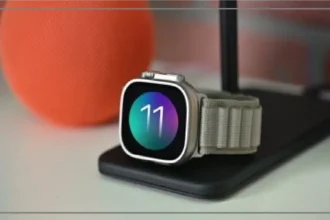Sideloading, the ability to install apps from outside the official App Store, has been a controversial topic surrounding iOS for years. With increasing antitrust scrutiny on Apple’s control over the iOS ecosystem, sideloading may soon become a reality for European iPhone users.
What is Sideloading?
Sideloading refers to installing apps on a device from a source other than the device’s official app store. On Android, sideloading is common – users can easily toggle a setting to install “unknown apps” and download APKs (app packages) from various sources.
iOS has never allowed sideloading, with a few exceptions. All iOS apps must be installed through the official App Store, where Apple reviews each app submission to enforce security, privacy, and policy standards. Apple argues this walled garden approach protects users. However, critics counter that it allows Apple to exert control over app distribution and in-app purchases to collect commissions.
Currently, limited iOS sideloading is possible through Apple’s enterprise and developer programs or by jailbreaking. However, it requires technical expertise and violates Apple’s terms in some cases. True iOS sideloading would allow average users to easily install apps from third-party stores or websites.
Why is the EU Requiring iOS Sideloading?
Pressure for iOS sideloading is largely driven by antitrust concerns with Apple’s total control over the App Store and iOS platform. Regulators view the iOS ecosystem as a monopoly that stifles competition and consumer choice.
The EU’s Digital Markets Act (DMA), which went into effect in 2022, targets large technology “gatekeepers” like Apple. It aims to open up platforms to increase competition. The DMA requires Apple to allow sideloading by March 2024 specifically for security researchers and business users.
The EU argues that forcing iOS sideloading only for enterprise and research purposes balances security risks with market fairness. But the requirement signals a paradigm shift – iOS will no longer be a completely closed system. It may also spur other countries like the US to propose similar legislation.
When Will iPhone Users Get iOS Sideloading?
Based on the DMA rules, Apple must fully implement some form of iOS sideloading by March 2024. However, Apple will likely wait until the last possible moment to make changes.
Bloomberg’s Mark Gurman reported in November 2023 that Apple plans to introduce sideloading in the first half of 2024. He says it will be a “highly controlled system” hinting that Apple won’t make sideloading easy or user-friendly unless forced to.
Gurman also claims Apple is working on related changes for Messages and payment systems to satisfy DMA requirements. These changes will likely arrive through a special iOS update (perhaps iOS 17.2) enabled only in Europe.
What are the Concerns Around iOS Sideloading?
For over a decade, Apple has argued that allowing iOS sideloading would severely degrade iPhone security and privacy. And even with EU oversight, concerns persist on how sideloading could negatively impact the iOS ecosystem.
Because sideloaded apps bypass App Store review processes, they present higher malware and data privacy risks. And average users often lack the knowledge to vet app safety compared to experts at Apple.
However, others counter that Android has offered sideloading for years without major security disasters. Google also invests heavily in malware scanning and verification tools. If iOS inherits similar protections, the dangers of sideloading may prove manageable.
There are also worries that iOS sideloading could enable more piracy and illicit app distribution. This could discourage developers from supporting iOS and hurt innovation. Apple may implement special protections around purchases, licenses, and DRM to mitigate piracy threats.
In the end, the effects of the upcoming changes remain to be seen. But Apple will certainly strive to prevent chaos on iOS, even as it reluctantly embraces sideloading.
Final Words
The controversial practice of sideloading is slated to arrive on iOS in the first half of 2024, but only for users in Europe to start. Apple is being forced to open iOS app distribution by new EU regulations focused on increasing competition.
It’s expected that Apple will restrict sideloading capabilities as much as legally possible out of security concerns. But the move signals a major shift in Apple’s strict control over the iOS platform. iOS sideloading may eventually expand globally depending on how it’s received and if other countries enact similar antitrust laws targeting Apple.
Time will tell if iOS can maintain its hallmark security with sideloading in the mix or if new vulnerabilities arise. But the era of iOS as a completely closed app ecosystem is poised to end in 2024.






